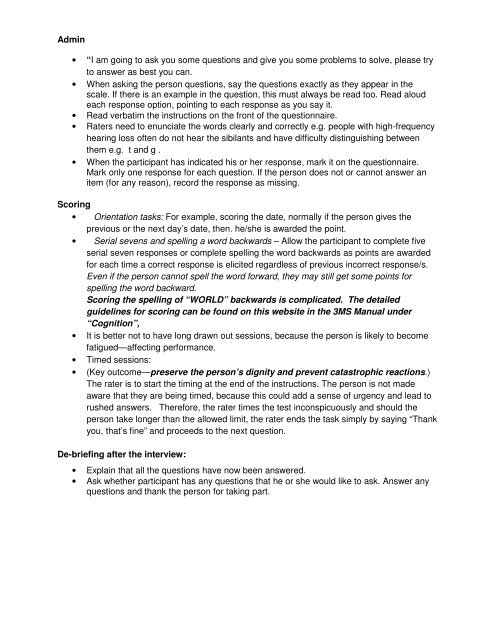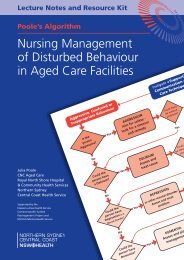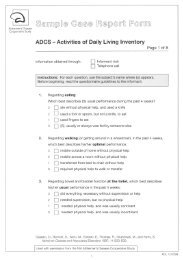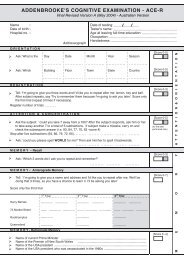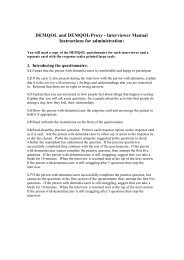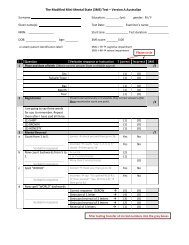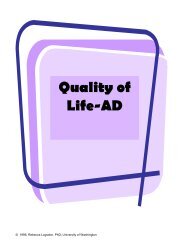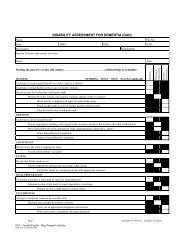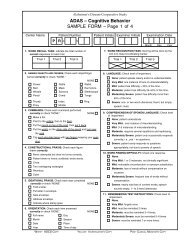Generic Guidelines for Dementia Assessment - Dementia Outcomes ...
Generic Guidelines for Dementia Assessment - Dementia Outcomes ...
Generic Guidelines for Dementia Assessment - Dementia Outcomes ...
You also want an ePaper? Increase the reach of your titles
YUMPU automatically turns print PDFs into web optimized ePapers that Google loves.
Admin<br />
• “I am going to ask you some questions and give you some problems to solve, please try<br />
to answer as best you can.<br />
• When asking the person questions, say the questions exactly as they appear in the<br />
scale. If there is an example in the question, this must always be read too. Read aloud<br />
each response option, pointing to each response as you say it.<br />
• Read verbatim the instructions on the front of the questionnaire.<br />
• Raters need to enunciate the words clearly and correctly e.g. people with high-frequency<br />
hearing loss often do not hear the sibilants and have difficulty distinguishing between<br />
them e.g. t and g .<br />
• When the participant has indicated his or her response, mark it on the questionnaire.<br />
Mark only one response <strong>for</strong> each question. If the person does not or cannot answer an<br />
item (<strong>for</strong> any reason), record the response as missing.<br />
Scoring<br />
• Orientation tasks: For example, scoring the date, normally if the person gives the<br />
previous or the next day’s date, then. he/she is awarded the point.<br />
• Serial sevens and spelling a word backwards – Allow the participant to complete five<br />
serial seven responses or complete spelling the word backwards as points are awarded<br />
<strong>for</strong> each time a correct response is elicited regardless of previous incorrect response/s.<br />
Even if the person cannot spell the word <strong>for</strong>ward, they may still get some points <strong>for</strong><br />
spelling the word backward.<br />
Scoring the spelling of “WORLD” backwards is complicated. The detailed<br />
guidelines <strong>for</strong> scoring can be found on this website in the 3MS Manual under<br />
“Cognition”,<br />
• It is better not to have long drawn out sessions, because the person is likely to become<br />
fatigued—affecting per<strong>for</strong>mance.<br />
• Timed sessions:<br />
• (Key outcome—preserve the person’s dignity and prevent catastrophic reactions.)<br />
The rater is to start the timing at the end of the instructions. The person is not made<br />
aware that they are being timed, because this could add a sense of urgency and lead to<br />
rushed answers. There<strong>for</strong>e, the rater times the test inconspicuously and should the<br />
person take longer than the allowed limit, the rater ends the task simply by saying “Thank<br />
you, that’s fine” and proceeds to the next question.<br />
De-briefing after the interview:<br />
• Explain that all the questions have now been answered.<br />
• Ask whether participant has any questions that he or she would like to ask. Answer any<br />
questions and thank the person <strong>for</strong> taking part.


